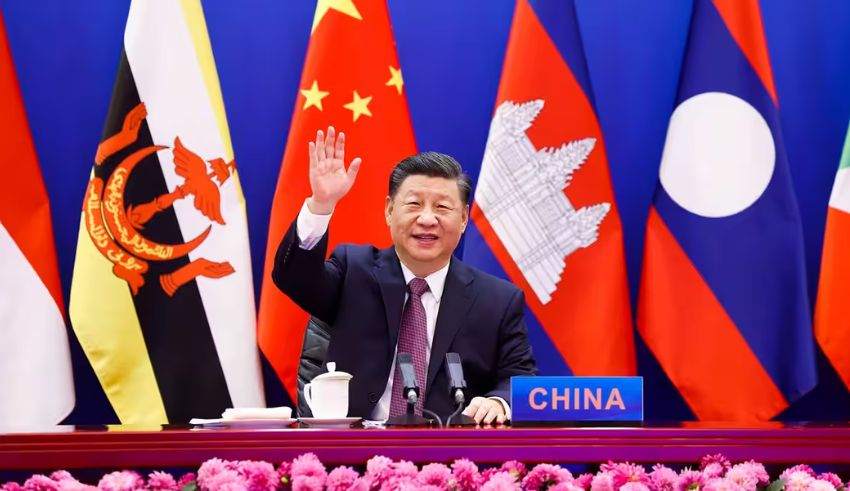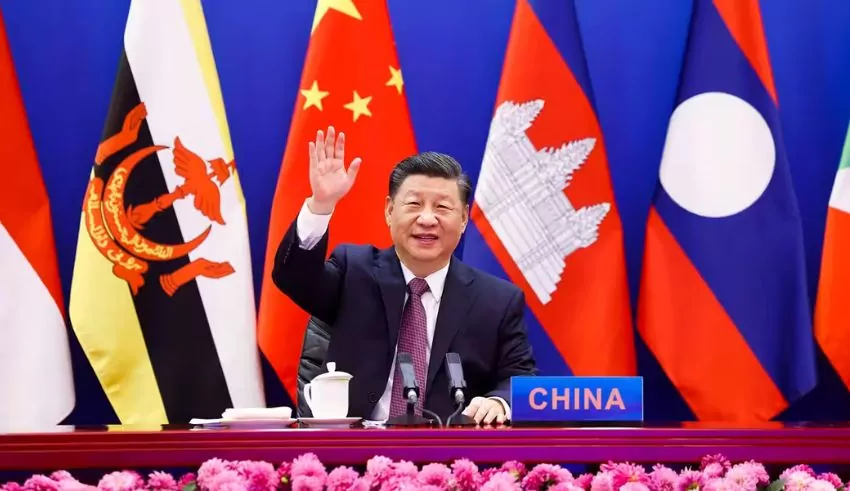

(C) The Indian Express
China’s influence in Southeast Asia is growing while the United States’ role in the region is recalibrating. This altering geopolitical landscape highlights China’s growing economic and strategic impact in Southeast Asia, prompting concerns about the region’s changing dynamics and the ramifications for global politics.
Against the backdrop of shifting international relations, China has made considerable inroads in Southeast Asia, aided by solid economic relationships, infrastructural projects, and diplomatic initiatives. The realignment of the US interests and commitments has given China an opportunity to strengthen its presence and influence in the area.
China’s Belt and Road Initiative (BRI) has been a key component of the country’s engagement with Southeast Asia. China has strengthened its economic relations with countries throughout the area by investing in infrastructure projects and economic development, contributing to increased connectivity and economic growth.
The United States, on the other hand, has adjusted its approach to Southeast Asia as its focus has shifted to other global concerns. While the US remains active in the region, its influence has dwindled, allowing China to fill the hole and enhance its strategic positioning.
The changing geopolitical landscape raises serious concerns about the balance of power and influence in Southeast Asia. As China’s influence grows, regional countries must navigate a complicated web of interests, striving to capitalize on economic possibilities while preserving sovereignty and maintaining a balanced approach to foreign relations.
China’s expanding prominence has also forced a rethinking of regional strategic alliances and partnerships. Southeast Asian countries are carefully weighing their alternatives and broadening their diplomatic and economic ties in order to ensure a harmonious and stable regional environment.
While China’s increasing influence in Southeast Asia is notable, it is vital to remember that geopolitical dynamics are fluid and vulnerable to change. The US and other global actors have significant interests in the region, and shifts in alliances and priorities can have an impact on the overall balance of power.
Ultimately, China’s growing influence in Southeast Asia as the United States’ presence fades highlights the region’s changing geopolitical situation. China’s economic and diplomatic endeavors have allowed it to expand its strategic footprint, causing a rethinking of regional dynamics and alliances.
As Southeast Asian nations traverse this evolving terrain, the balance of power and influence remains a vital consideration in shaping the region’s political and economic landscape’s future direction.
In a unique melding of old spirituality with new technology, Johor's Tianhou Temple claims to have the first-ever Mazu statue…
Former DIA member Somyi is returning to the hallowed halls of K-Pop following legal troubles and a bitter stint in…
Cebu pride Anton “The Dragon” Raga gave an impressive performance on Sunday night dominating the Sharks Billiards Association (SBA) Philippine…
At ASEAN Headquarters in Jakarta, Dr. Kao Kim Hourn welcomed Professor Nobuhiro Aizawa the dean of Economic Research Institute for…
Mao Saigo etched history on Sunday by winning the Chevron Championship after overcoming a thrilling five-player playoff to become the…
K-Dramas have become a household name around the world in the past two or more decades-from Asia to the Americas,…
This website uses cookies.
Read More